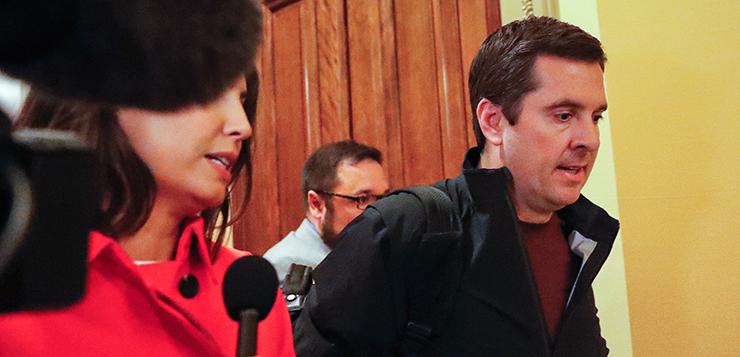Rep. Mike Quigley (D-Illinois) returned from a two–day investigative visit to the island nation Cyprus on April 14.
Quigley visited Cyprus due to his position on the House Intelligence Committee (HIC). The island has been known by U.S. government officials to be a “laundromat” for Russian officials.
“You launder money to avoid taxes, to avoid worldwide sanctions,” Quigley told CNN upon his return. “This is where a lot of money laundering takes place. This is where the Russians act, and this is where key figures in the investigation have played as well.”
Quigley refused to reveal any specific findings from the trip and whether the HIC unearthed anything illegal regarding U.S. ties with Russia.
In the past month, the committee has been on shaky ground. It lost its chairman, Rep. Devin Nunes (R-CA) in early April. Nunes announced he would step down from leading the investigation into Russia’s involvement in last year’s presidential election just before the House Committee on Ethics said they are “investigating and gathering more information regarding these allegations” of whether Nunes made unauthorized disclosures of classified information.
Another committee supposed to investigate the Trump administration, the House Oversight Committee, will lose its chairman as well. Rep. Jason Chaffetz (R-Utah) announced on April 19 he will not run for Congress next term.
“After more than 1,500 nights away from my home, it is time. I may run again for public office, but not in 2018,” Chaffetz said.
Chaffetz received criticism after his remarks suggesting lower-income U.S. citizens opt for paying for health care rather than a new cell phone.
“Americans have choices, and they’ve got to make a choice. So rather than getting that new iPhone that they just love and want to go spend hundreds of dollars on that, maybe they should invest in their own health care,” Chaffetz told CNN after House Republicans revealed their plan to replace ObamaCare.
Cyprus caught the attention of the HIC after U.S. treasury agents in recent months obtained information connected to President Donald Trump’s former campaign chairman, Paul Manafort. Manafort apparently had conducted business transactions in Cyprus.
Manafort said his transactions there were normal, however.
“Like many companies doing business internationally,” Manafort told AP, “my company was paid via wire transfer, typically using clients’ preferred financial institutions and instructions.”
An AP investigation revealed a company tied to Manafort received a $1 million payment in October 2009 from an unknown firm through the Bank of Cyprus. On the same day, the $1 million left the account in the form of two roughly $500,000 amounts. The recipient is unknown.
“The fact that Turkey, the U.S. and Russia and other countries are really interested in Cyprus, because of its strategic location(…) the fact that Russians launder their money there to avoid sanctions, and the fact that key U.S. and Russia players were there – all make it really important for the Russia investigation,” Quigley told the Daily Beast.
Quigley has been vocal in the past about his role in investigating Russian hacking prior to the U.S. elections. In January at the Lincoln Central Association’s annual meeting, he drew parallels between the Watergate scandal during the Nixon administration and the hacking.
Quigley called the investigation “challenging, interesting and absolutely critical,” at the meeting. “It’s probably as important as anything I’ve done in my life.”


